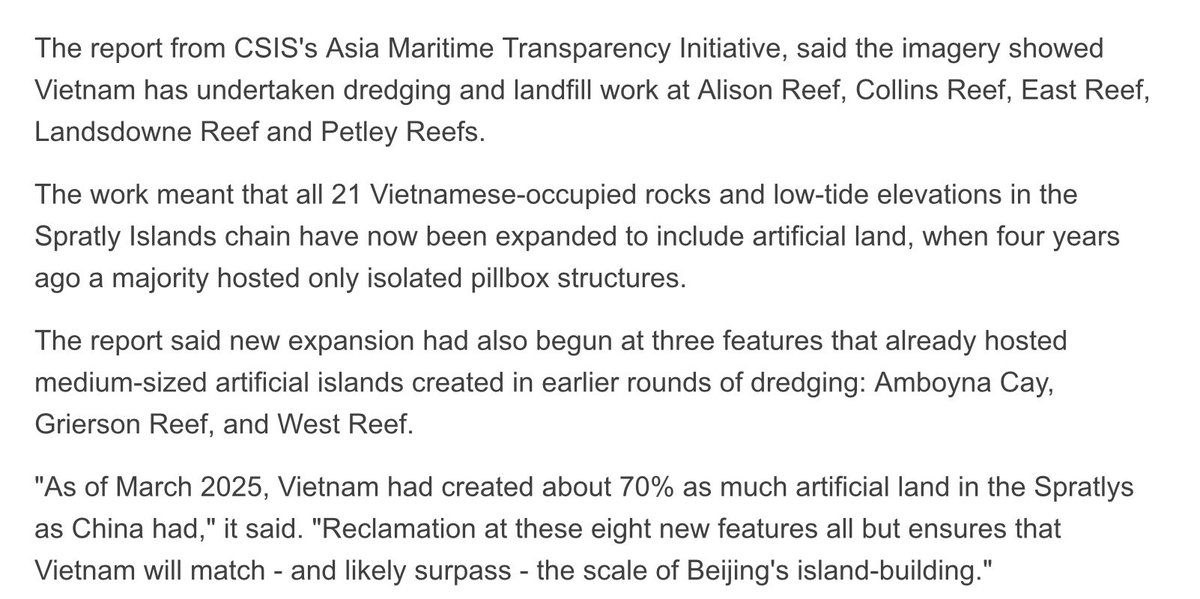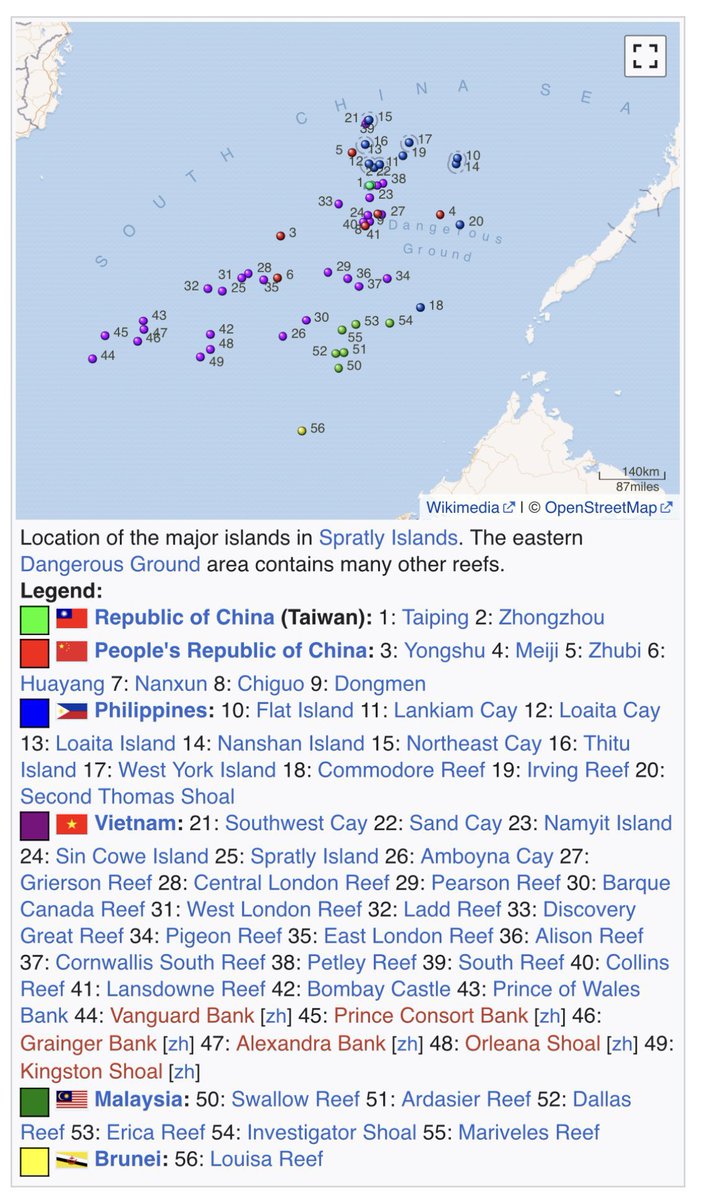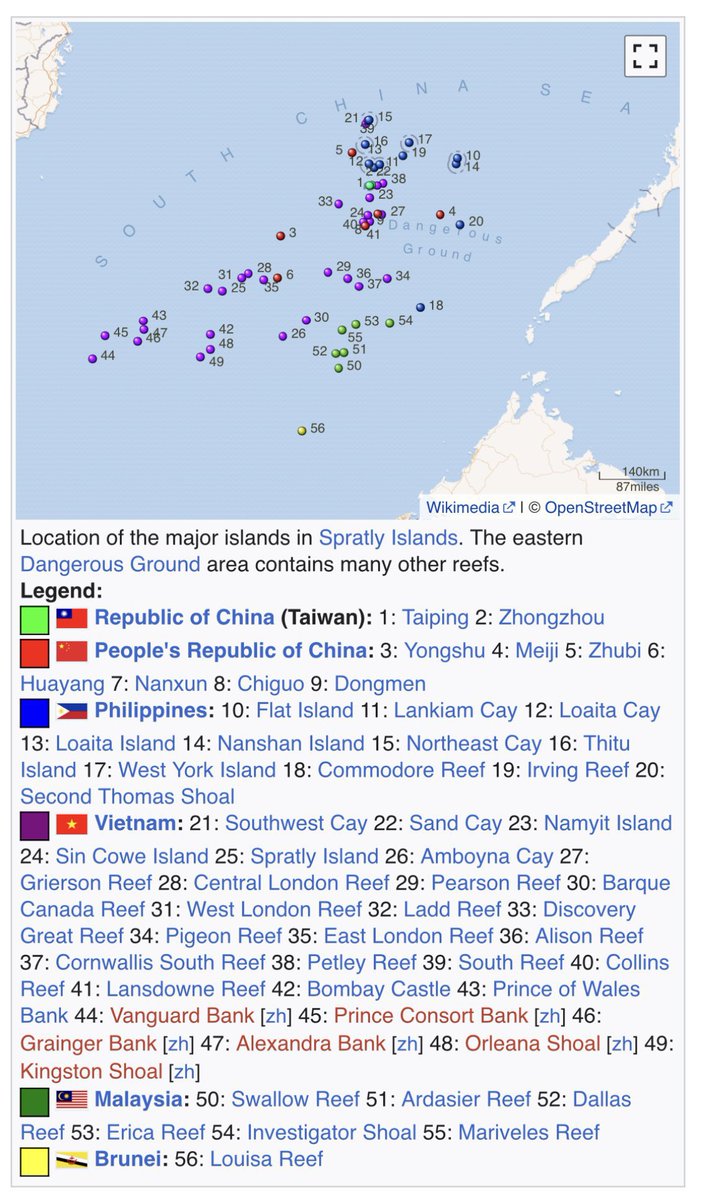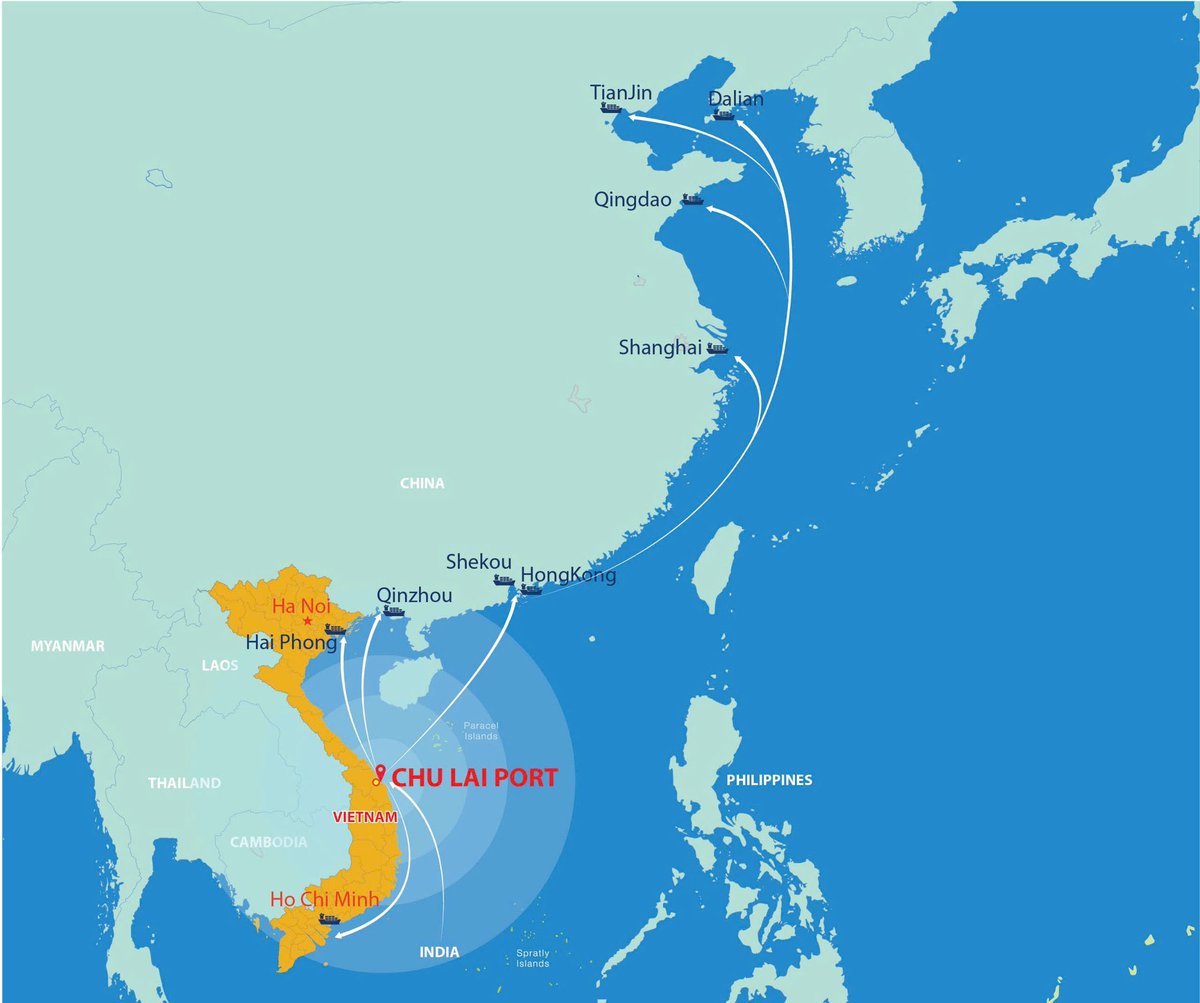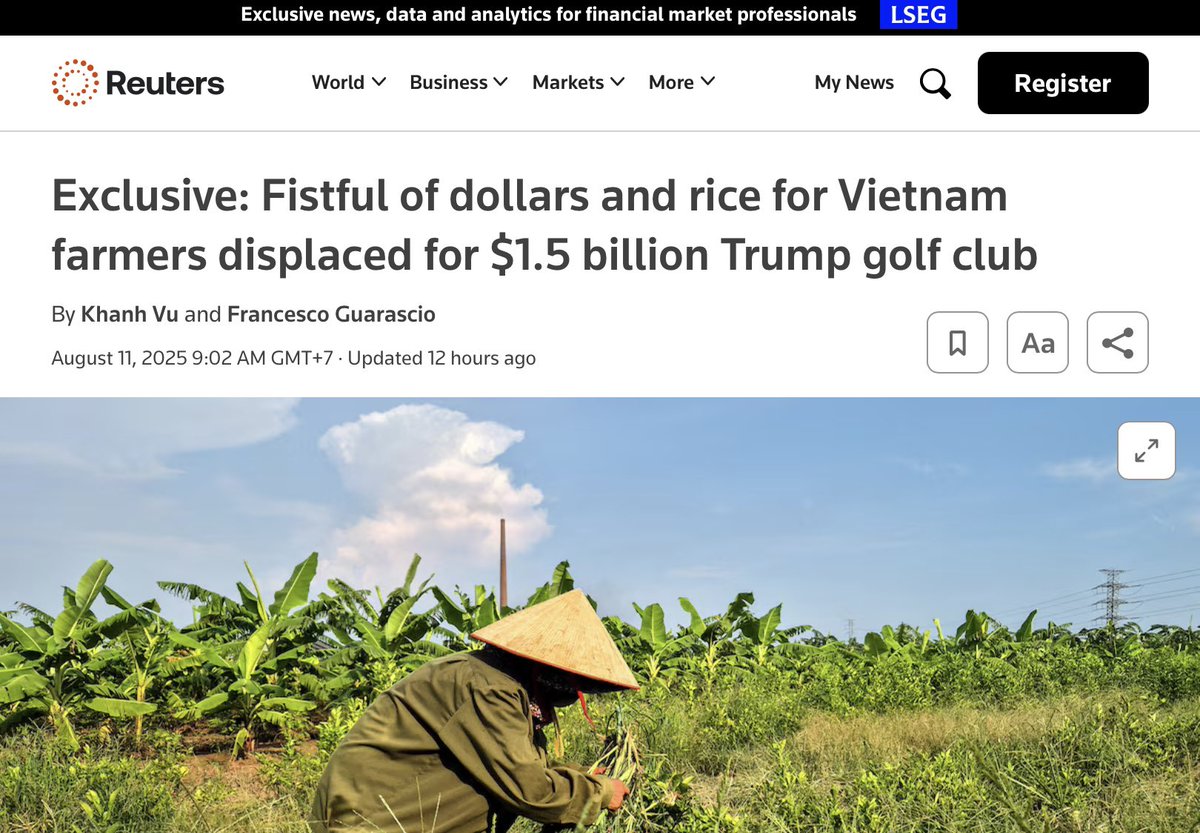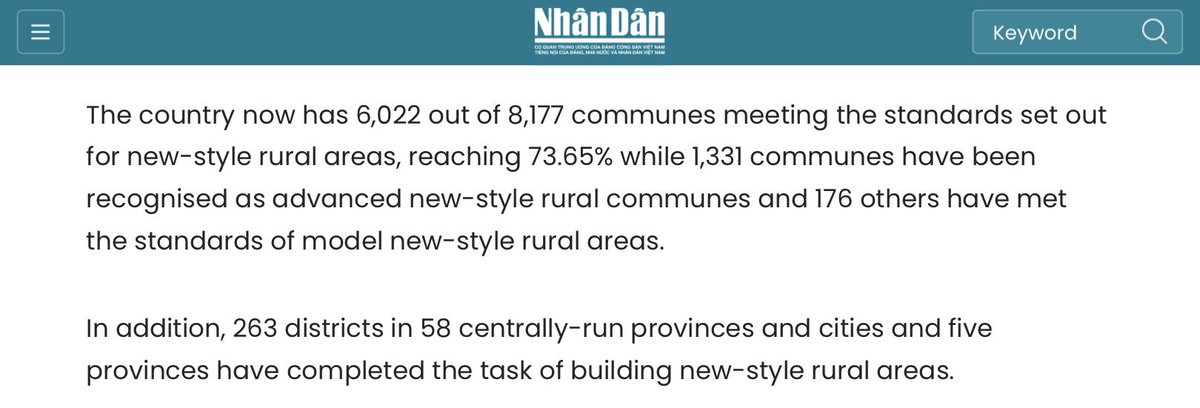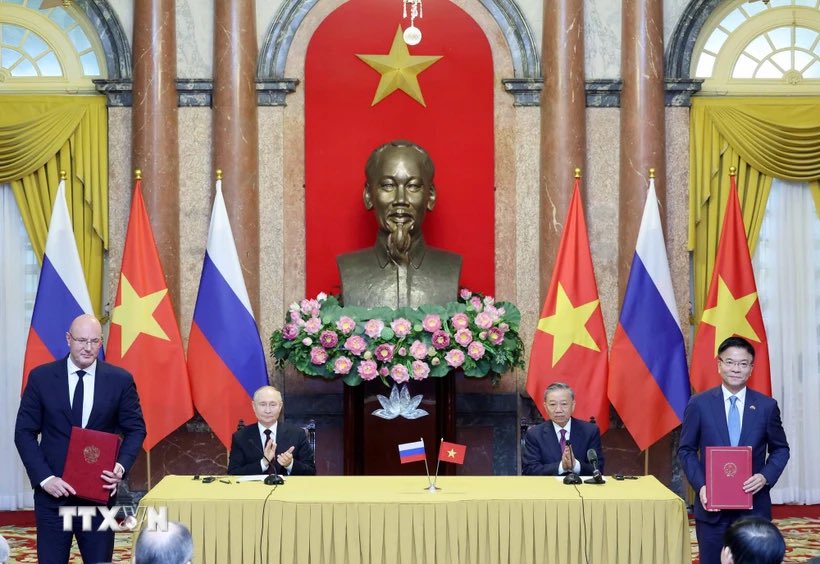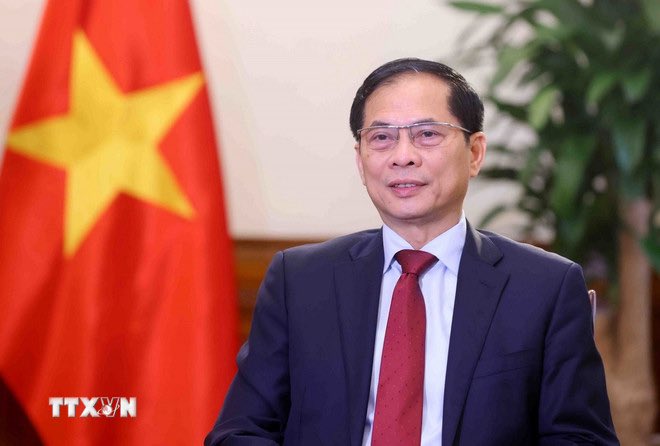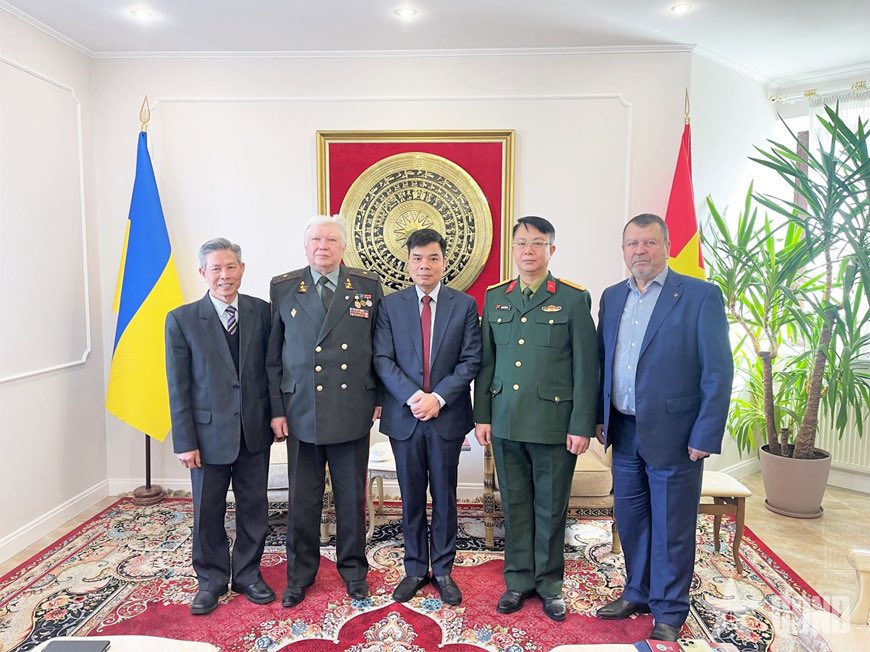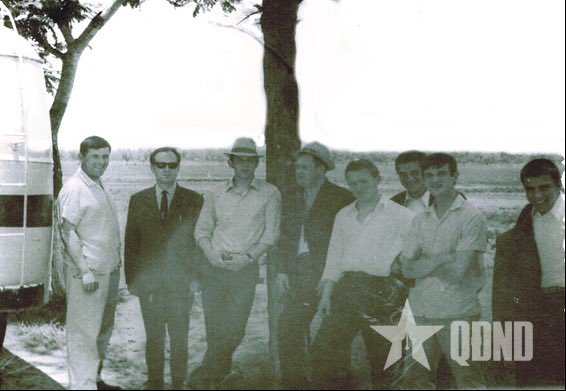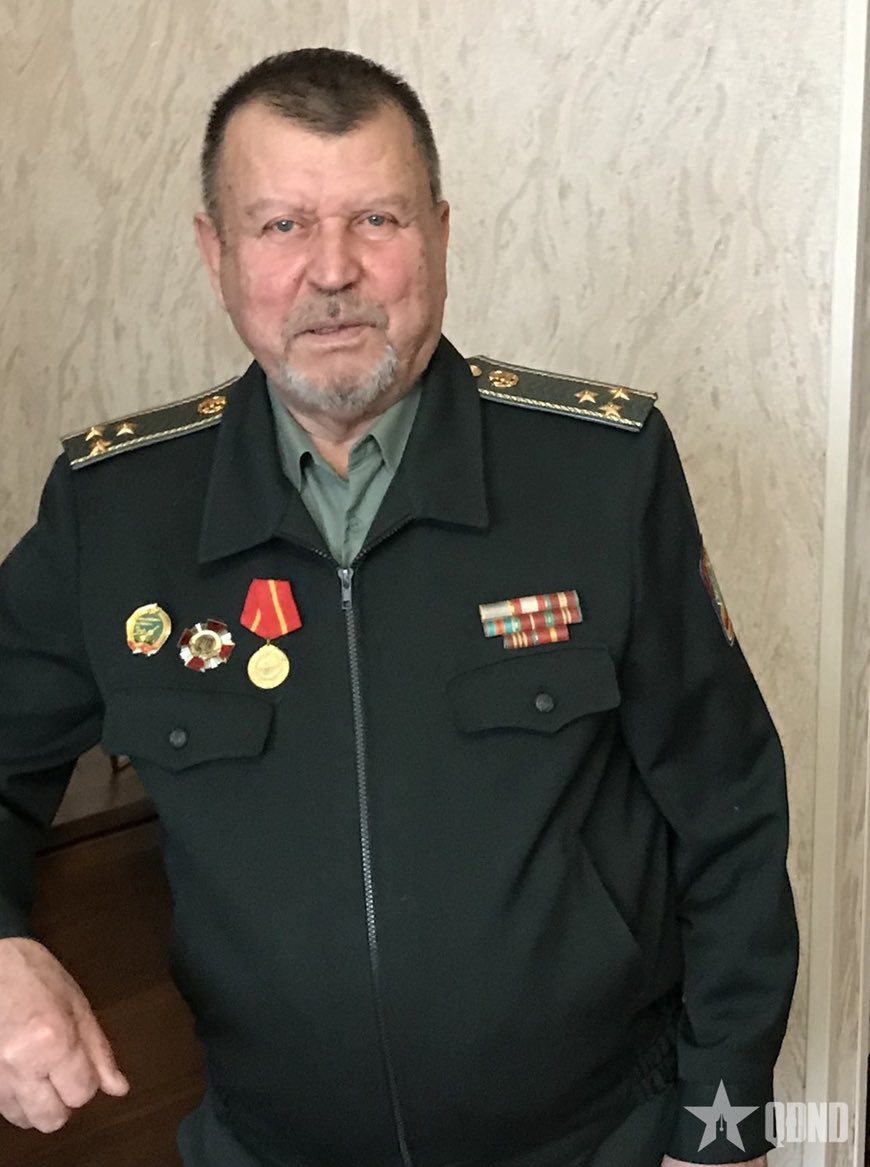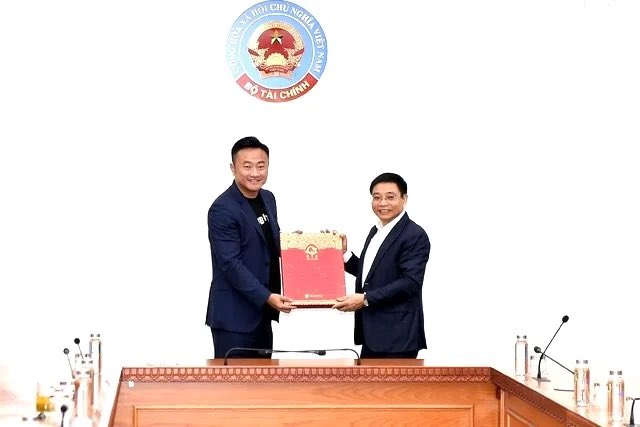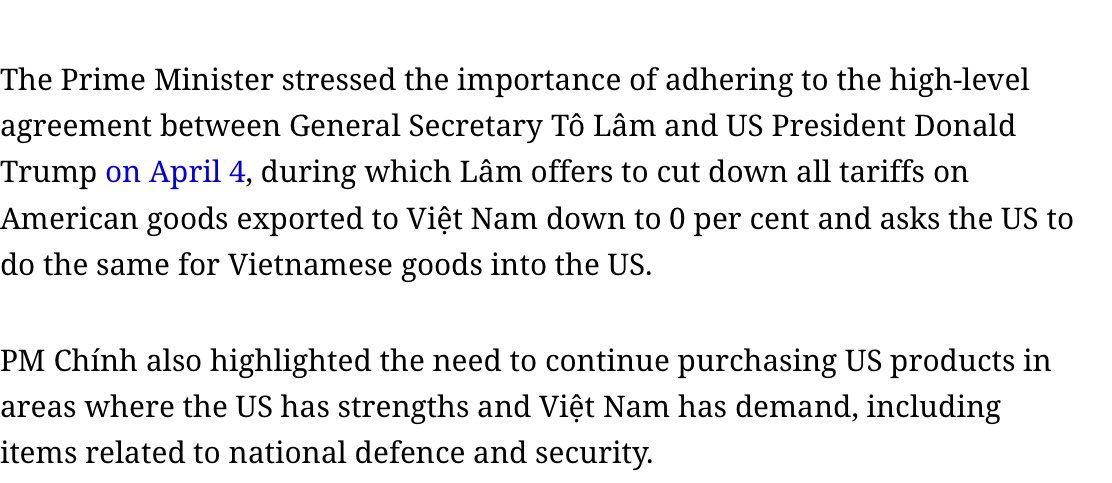“Hanoi actions create problem for US operation to demonize China” is the latest “pro China” CIA script from Hong Kong
Notice how this narrative lines up with the latest US think tank report?
Let’s look at the real facts and not cheaply laundered US propaganda.
Thread 🧵
Notice how this narrative lines up with the latest US think tank report?
Let’s look at the real facts and not cheaply laundered US propaganda.
Thread 🧵
https://twitter.com/nuryvittachi/status/1960151103439560773
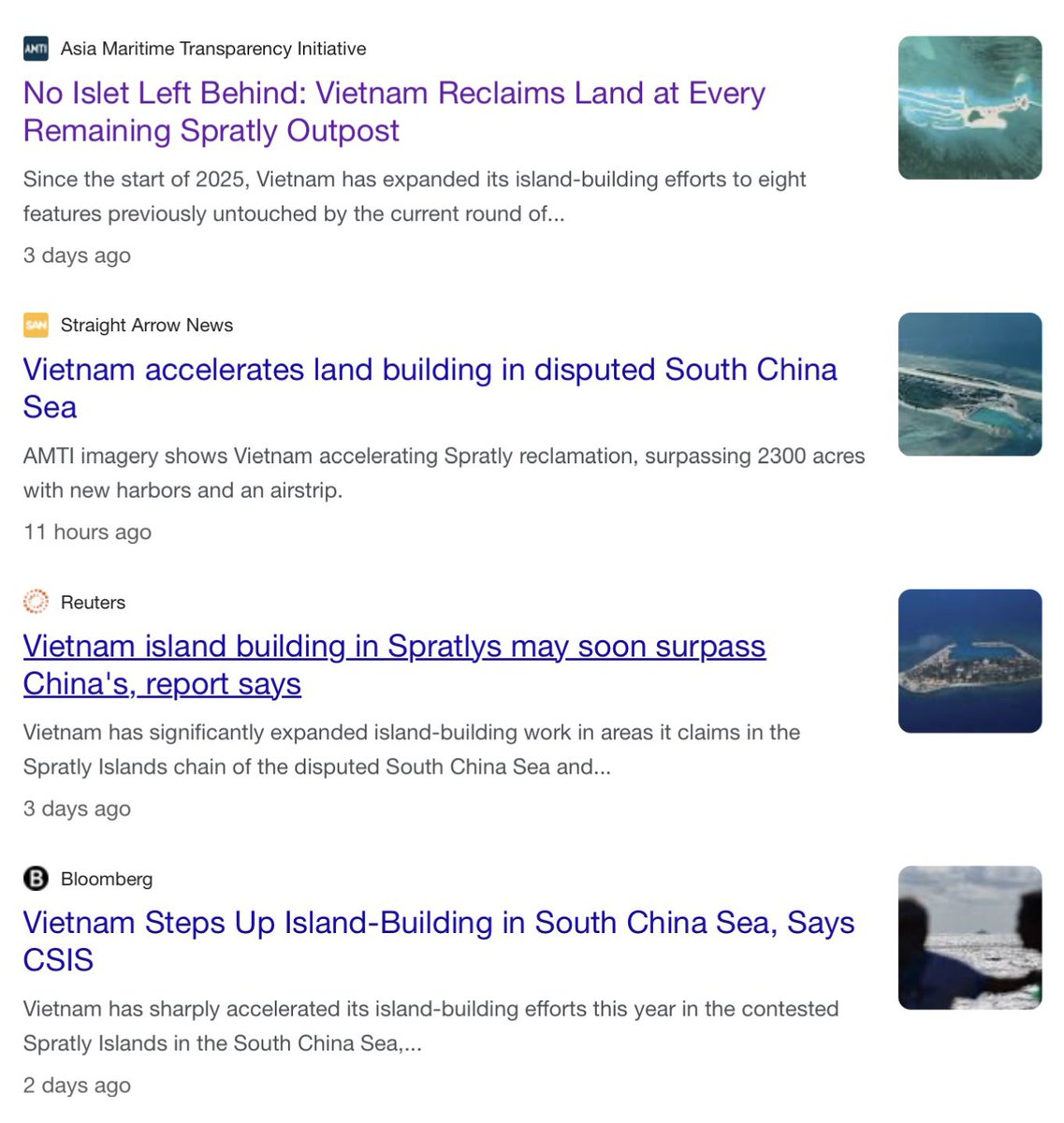
In April, both sides agreed to “strictly adhere to the consensus between ASEAN and China in implementing the DOC and promoting the achievement of a substantive and effective COC in accordance with international law and the 1982 United Nations Convention on the Law of the Sea”
https://twitter.com/wrenevans217208/status/1912033034393559188
More importantly, “the two sides pledged not to take any actions that may complicate the situation or expand disputes, and to work together to maintain stability at sea.”
https://twitter.com/wrenevans217208/status/1912348307726250135
After Xi’s visit to Vietnam, he himself wrote an article saying it is neccessary to “eliminate interference, create consensus and resolve disagreements, and turn the "South China Sea" (East Sea) into a sea of peace, friendship and cooperation”
https://twitter.com/wrenevans217208/status/1911757654625751145
By May, both sides also reached common consensus on how to advance bilateral agenda with the rest of ASEAN
vietnamnet.vn/en/government-…
vietnamnet.vn/en/government-…
This theme of peaceful cooperation over the seas has been consistently at Party level (not Govt level) for years.
Such as when To Lam previously visited Xi Jinping in 2024
vietnamnews.vn/politics-laws/…
Such as when To Lam previously visited Xi Jinping in 2024
vietnamnews.vn/politics-laws/…
The problem for people promoting Amerikkkan narrative:
The full text of joint statements between Vietnam and China (they are all public and online, but most people refuse to read them).
For example, after To Lam’s visit ⬇️
en.vneconomy.vn/vietnam-china-…
The full text of joint statements between Vietnam and China (they are all public and online, but most people refuse to read them).
For example, after To Lam’s visit ⬇️
en.vneconomy.vn/vietnam-china-…
You can also look at the locations of China’s 3,000 meter military runway (which is further in) that have been built since 2015, they line up with the red dot in the above map 

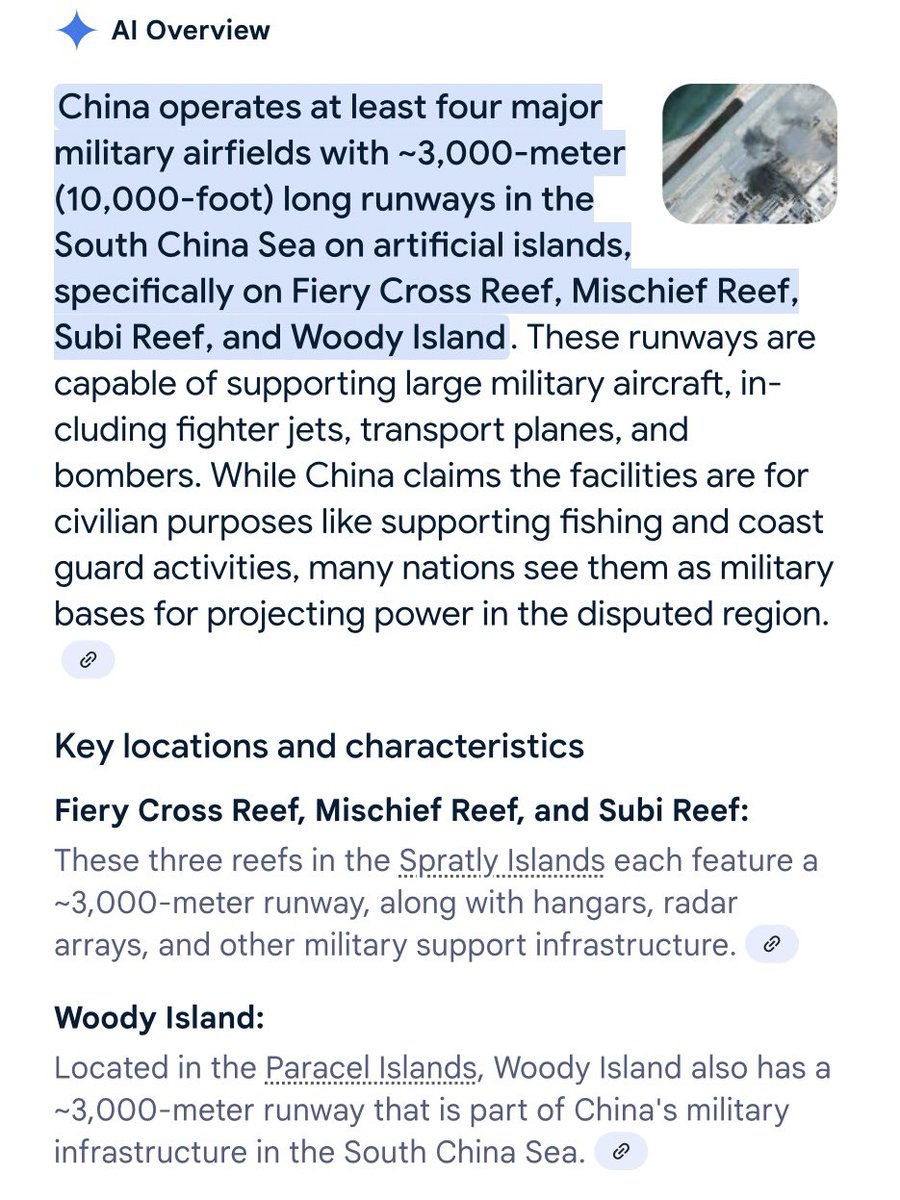
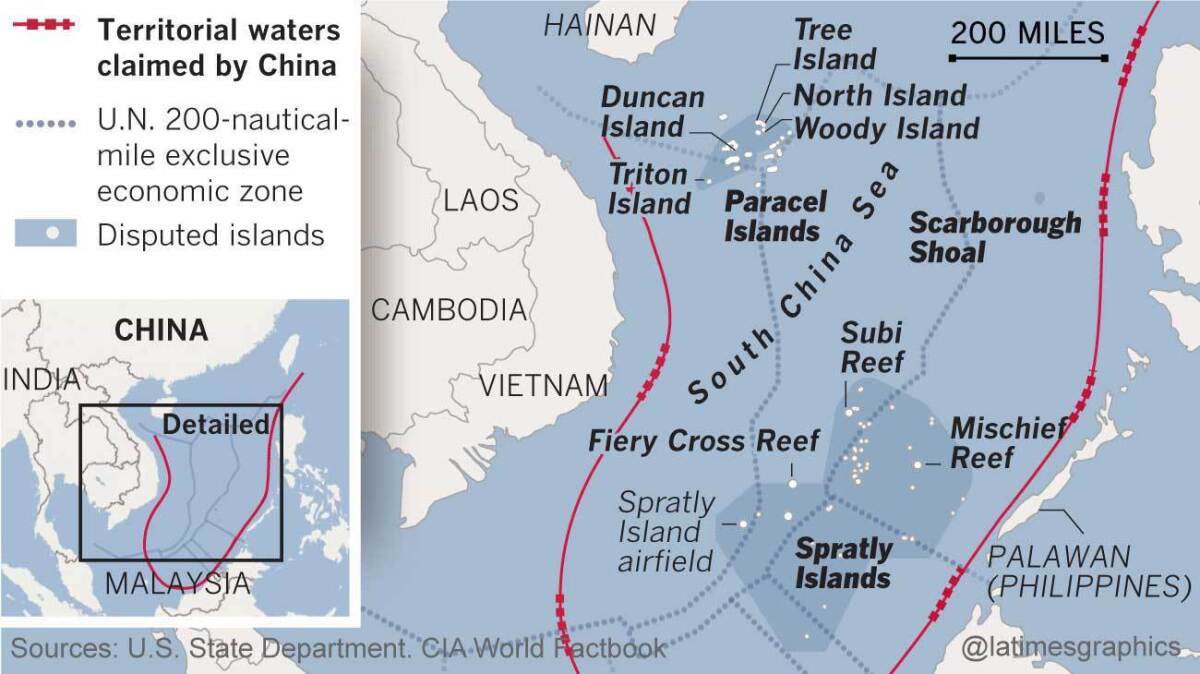
Then compare with the location of Vietnam’s 3,000 meter military runway that have been built recently: Barque Canada Reef
This is actually closer to the Malay Peninsula, which is in reality the tail end of the First Island Chain.

This is actually closer to the Malay Peninsula, which is in reality the tail end of the First Island Chain.
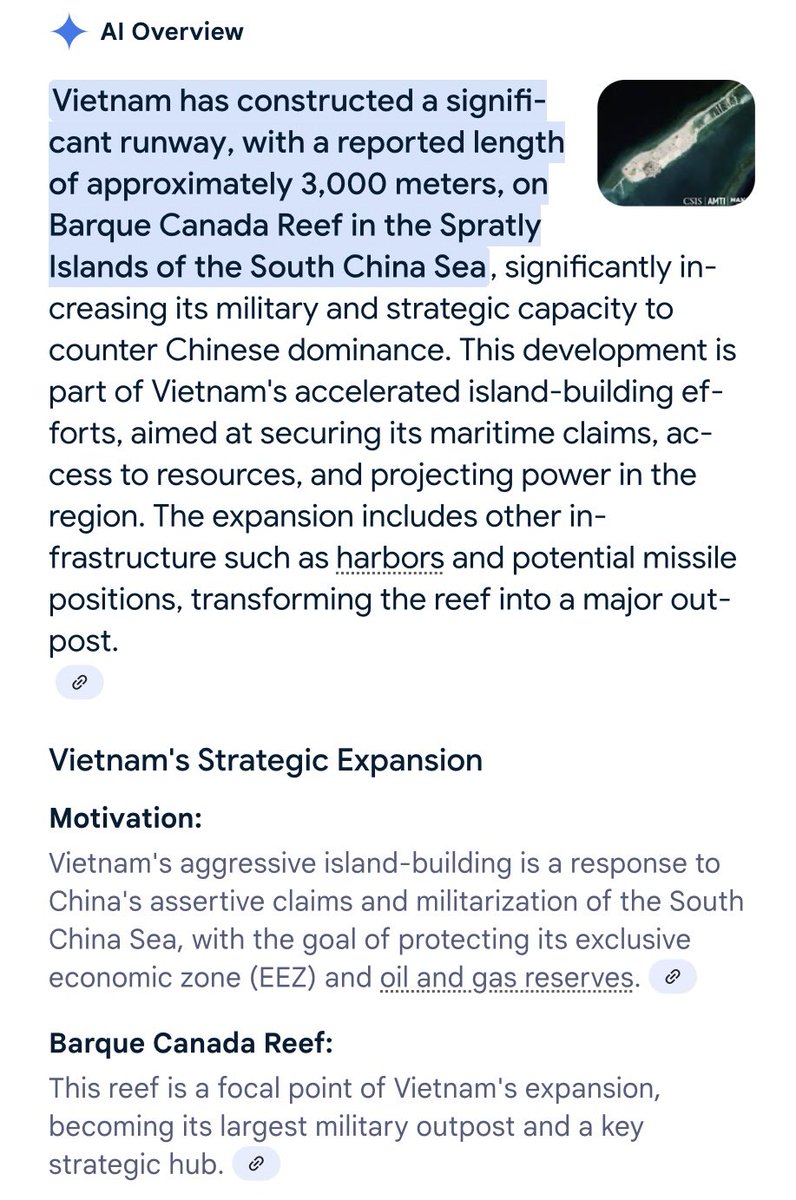
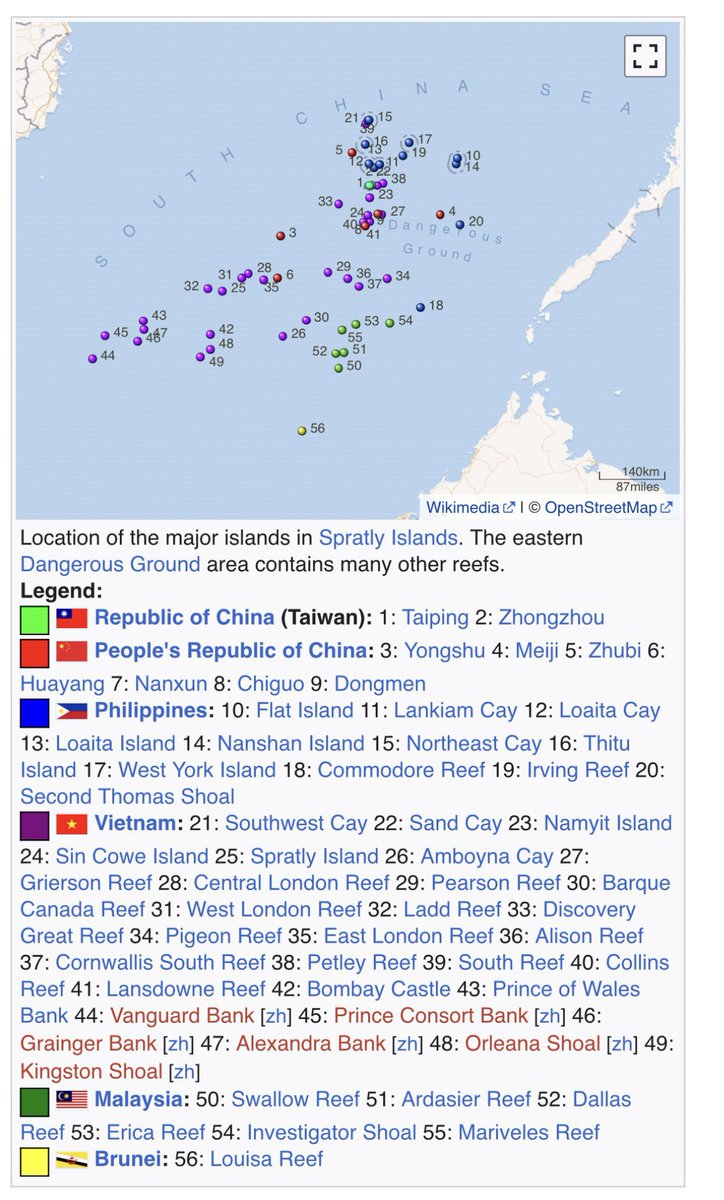
It is targeting Borneo, the world third largest island.
The US is rattled at the potential that Vietnam helps breaking the first island chain through assisting intel report to China on the movement of US ships newsweek.com/us-air-force-f…

The US is rattled at the potential that Vietnam helps breaking the first island chain through assisting intel report to China on the movement of US ships newsweek.com/us-air-force-f…
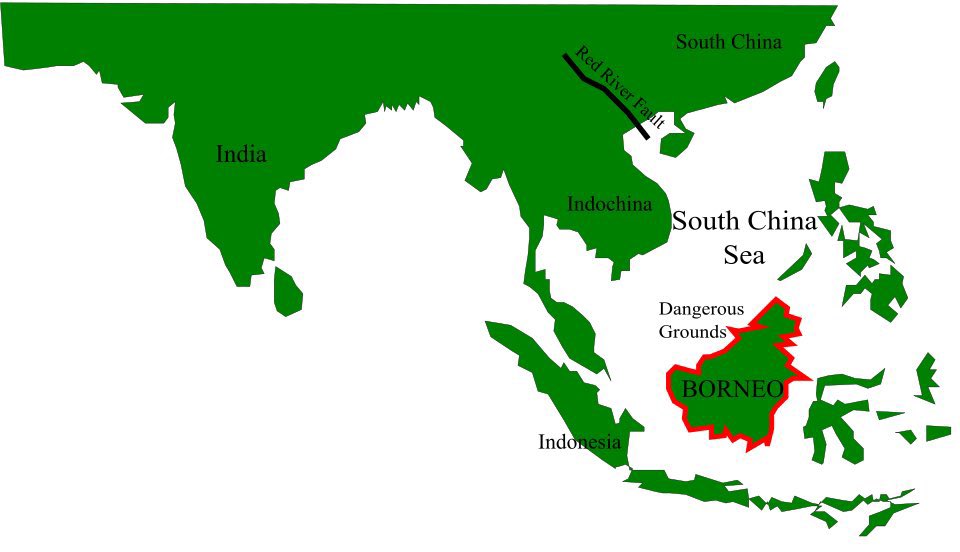
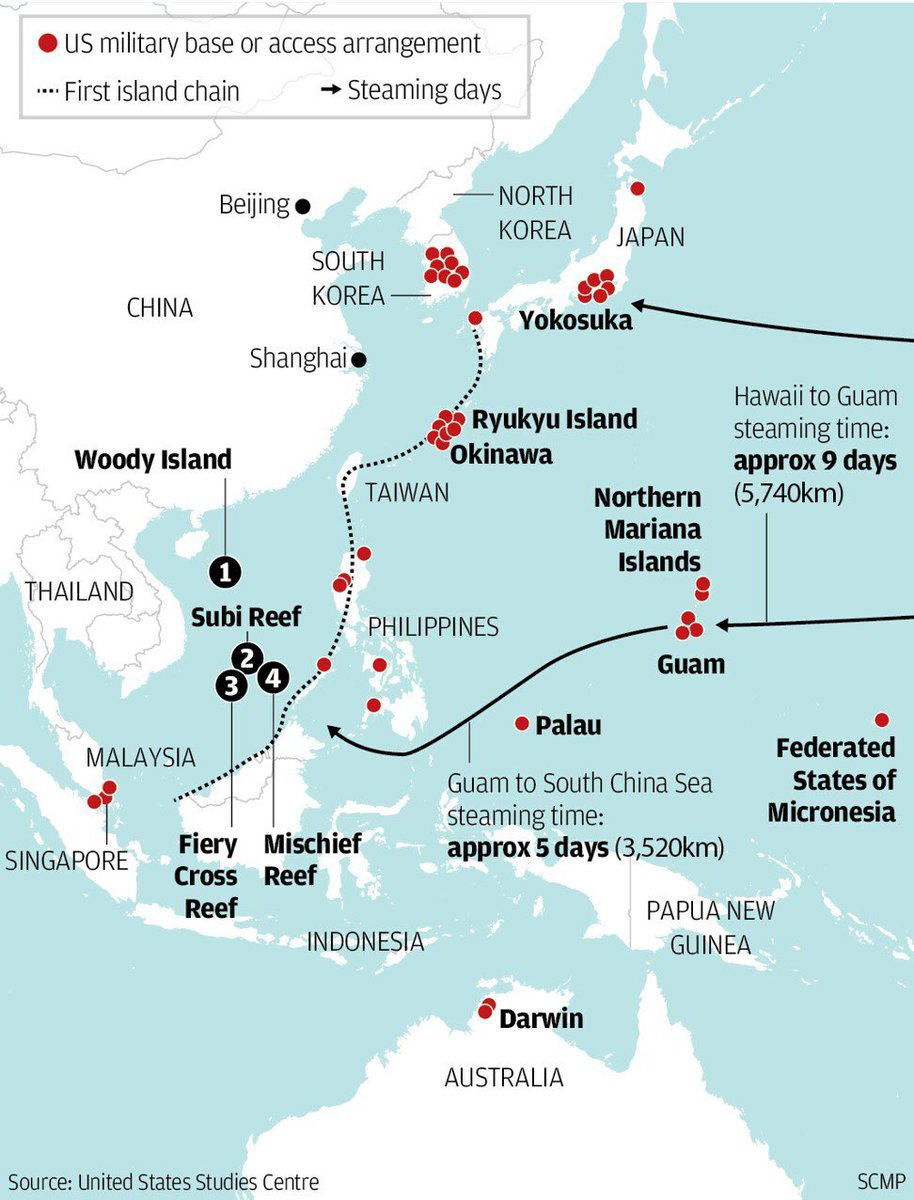
This is why “to defend the First Island Chain”, the US Navy has been monitoring Central Vietnam in its own military report
usni.org/magazines/proc…

usni.org/magazines/proc…
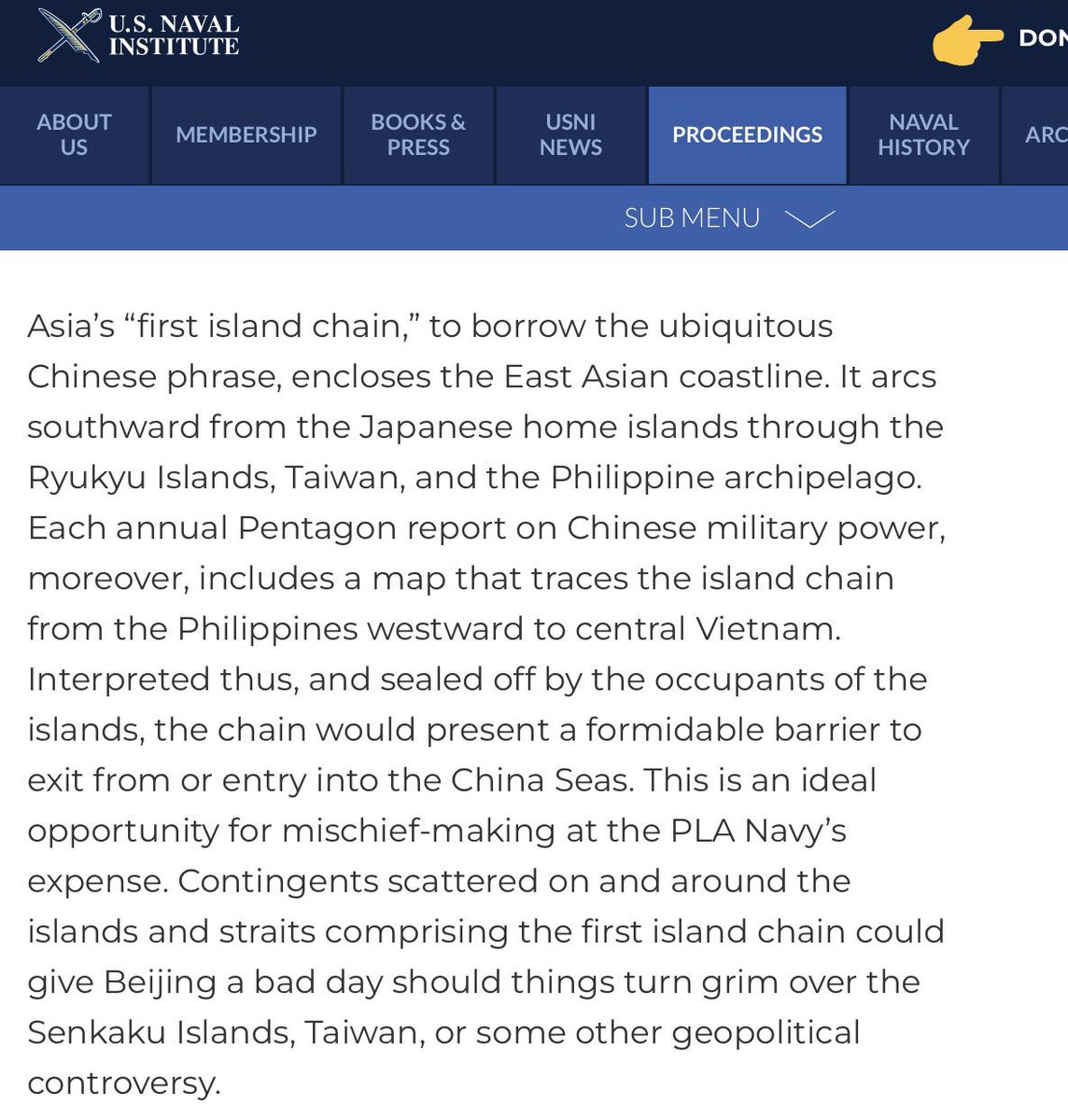

China’s “9 dash line” (left) or Vietnam’s maritime border (right) are basically just excuses to deny US Freedom of Navigation.
With China monitoring the North and Vietnam monitoring the South, guarding against all other ASEAN nations.

With China monitoring the North and Vietnam monitoring the South, guarding against all other ASEAN nations.
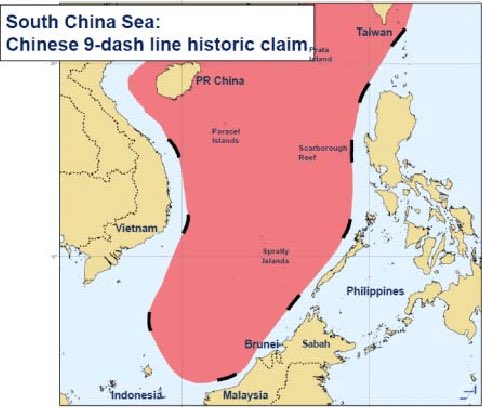

In addition to military build up, you can see more preparation in the way both countries are driving maritime trade closer to the mainland Indochina trade route and away from ASEAN traditional maritime trade
From the north of Vietnam
From the north of Vietnam
https://twitter.com/wrenevans217208/status/1892197938421694867
And now the South of Vietnam
vietnam.vn/en/bo-quoc-pho…
(Rumour has it that Vietnam might launch its satelitte system here and set up a military system to protect its trade security) x.com/wrenevans21720…
vietnam.vn/en/bo-quoc-pho…
(Rumour has it that Vietnam might launch its satelitte system here and set up a military system to protect its trade security) x.com/wrenevans21720…
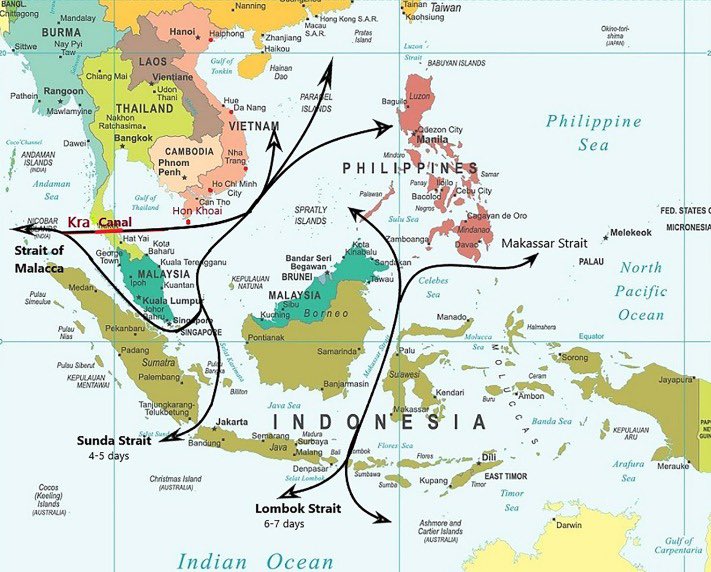
The plan has been in the works since 2015.
With new trade routes ignoring all ASEAN maritime countries, not only the Taiwan card will be of no use, but also these other countries must submit themselves for access under communist control
vneconomy.vn/chinh-phu-chap…
With new trade routes ignoring all ASEAN maritime countries, not only the Taiwan card will be of no use, but also these other countries must submit themselves for access under communist control
vneconomy.vn/chinh-phu-chap…
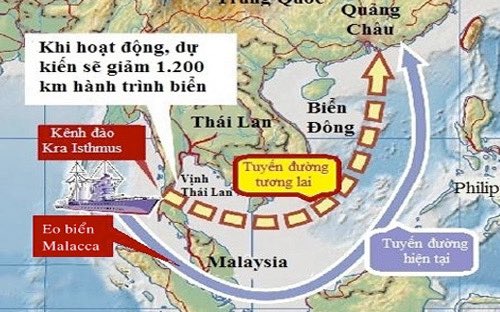
• • •
Missing some Tweet in this thread? You can try to
force a refresh

